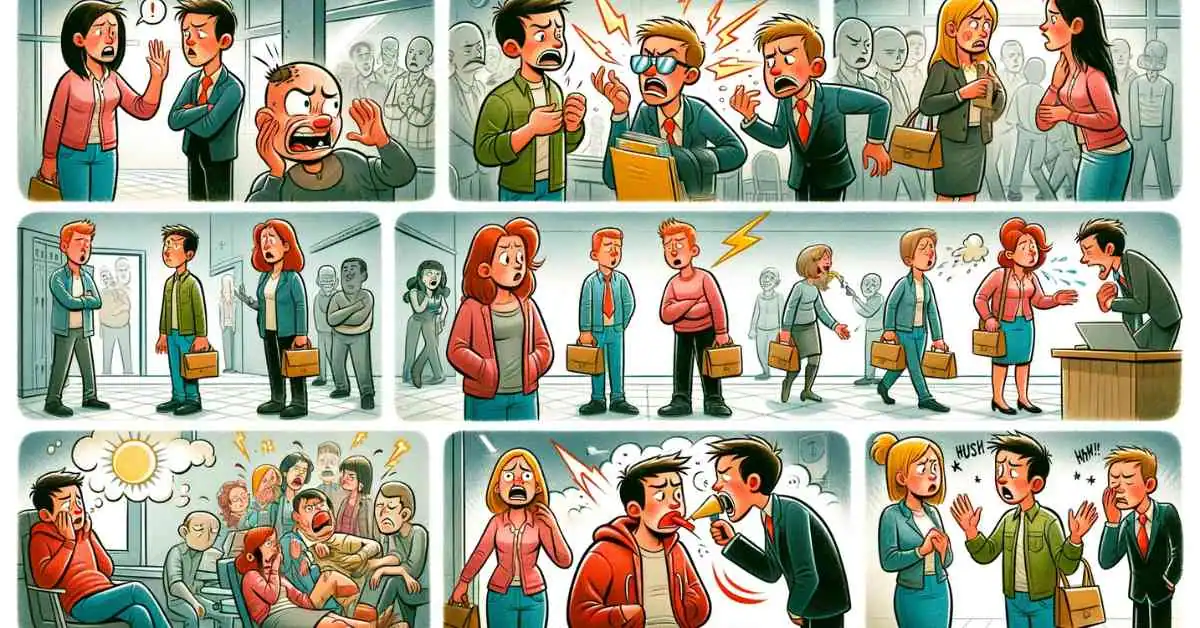Have you ever said something mean and then wished you hadn’t? Hurtful words can damage friendships and make people feel bad. When we insult someone, even if we didn’t mean to, it can hurt their feelings a lot. But saying sorry in the right way can help fix things. It’s about realizing what we said was wrong and meaning it when we say sorry.
“Kindness is the language which the deaf can hear, and the blind can see.”
– Mark Twain
In this blog post, we’ve got lots of sorry messages for insulting someone. Maybe you said something in anger, or you didn’t mean your words to be so hurtful. Saying sorry is important to start making things right. These messages are about saying sorry for real, asking for forgiveness, and trying to heal the friendship. Let’s see how saying sorry can help turn a bad moment into a chance to strengthen your relationship.
You Might Also Like:
Apologies for Rude or Demeaning Comments
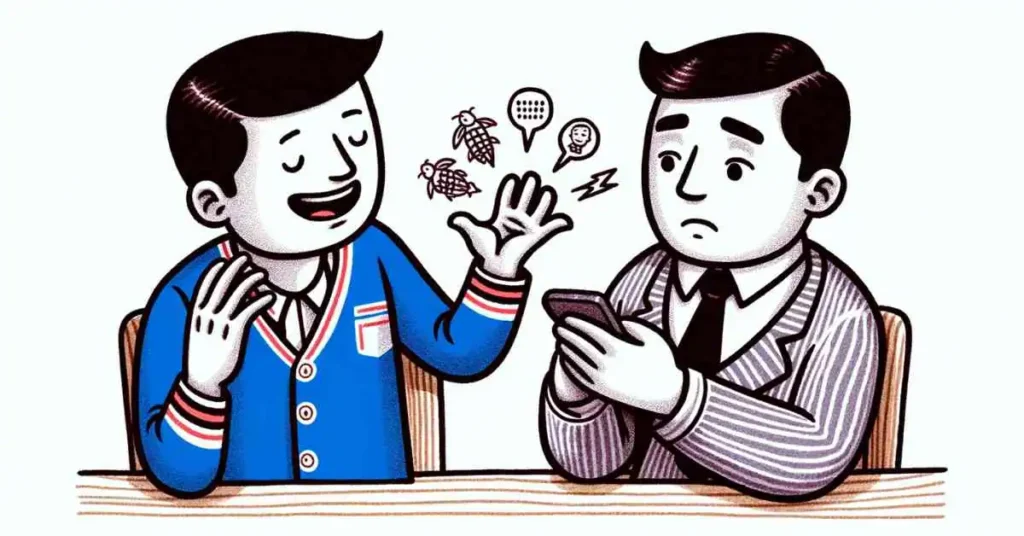
It’s not nice to say things that are rude or make someone feel small. Here are some ways to say sorry if you’ve done that:
“I’m sorry for what I said. It was mean, and I shouldn’t have said it. I’ll be nicer when I talk from now on.”
“I apologize for my rude words. They were wrong and hurtful, and I feel bad about it. I’ll try to be more understanding.”
“Sorry for saying something that made you feel bad. It was a mistake, and I’ll be more careful with my words.”
“I regret making that hurtful comment. It wasn’t right, and I’m sorry. I’ll speak more kindly in the future.”
“I’m sorry for my words that made you feel less important. I didn’t mean to, and I’ll be more respectful from now on.”
“I apologize for being unkind with my words. They were hurtful, and I’m sorry. I promise to be more positive.”
“I’m sorry for the mean thing I said. It was thoughtless, and I regret it. I’ll work on being nicer.”
“Sorry for my rude words. It wasn’t nice, and I apologize. I’m trying to be more thoughtful.”
“I regret saying something that made you feel small. It was wrong, and I’m sorry. I’ll make sure to speak in a kind and respectful way.”
“I apologize for the rude thing I said. It was wrong, and I feel bad about it. I’ll be more careful with my words.”
“I’m sorry for making you feel bad with what I said. It was a mistake, and I regret it. I’ll work on being kinder.”
Saying sorry like this shows you know you were wrong, and you feel bad about it. It’s important to be kind and respectful when you talk to others.
Apologies for Personal Attacks or Judgments
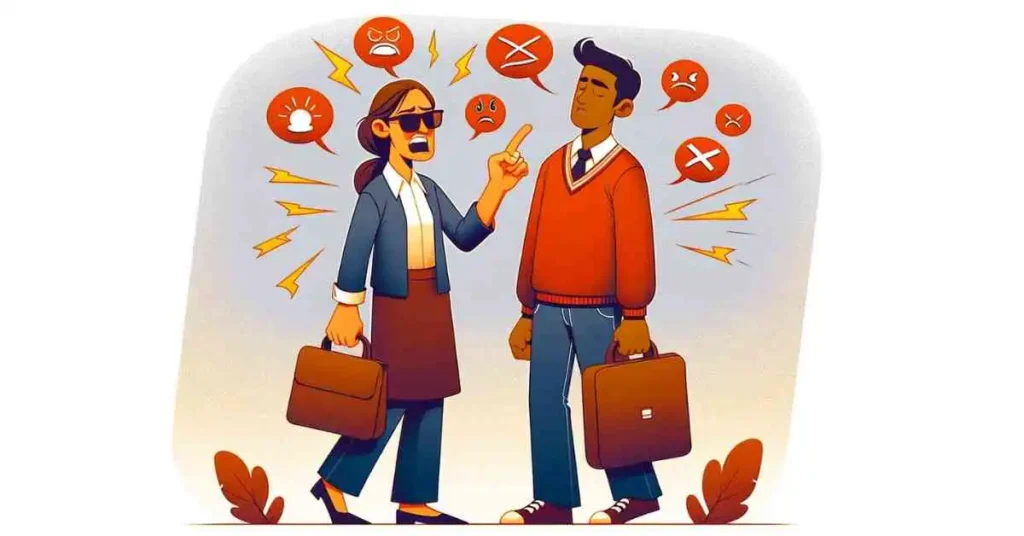
Saying mean things about someone’s looks, character, or choices can hurt. Here are some simple ways to say sorry for doing that:
“I’m sorry for saying mean things about you. It was wrong and hurtful. I promise not to say such things again and to respect our differences.”
“I apologize for the hurtful things I said about you. It wasn’t nice, and I feel bad for causing you pain. I’ll try to be more accepting and kind.”
“Sorry for criticizing you in a mean way. It was hurtful, and I regret it. I’ll work on being more positive and less judgmental.”
“I regret making a mean comment about your choices. It wasn’t my place, and I’m sorry for any hurt it caused. I’ll respect your decisions from now on.”
“I’m sorry for making fun of how you look. It was rude and not okay. I promise to be more thoughtful and kind.”
“I apologize for saying hurtful things about your character. I was wrong, and I’m sorry. I’ll focus on being more understanding and supportive.”
“Sorry for my harsh words about your choice. It wasn’t right, and I feel bad. I’ll respect your choices in the future.”
“I regret the personal attack I made. It was unkind, and I’m sorry. I’ll work on accepting you as you are.”
“I’m sorry for judging you harshly. It was unfair, and I’m sorry for any upset I caused. I’ll try to be more open-minded.”
“I apologize for my negative comments about you. It was mean, and I regret it. I promise to be more respectful and kind.”
“I’m sorry for saying things that hurt your feelings. It wasn’t right, and I regret it. I’ll work on being nicer and not judging.”
Saying sorry like this shows you know what you said was wrong and that you feel bad about it. It’s important to be kind and not judge others harshly.
Apologies for Insensitive Jokes or Sarcasm
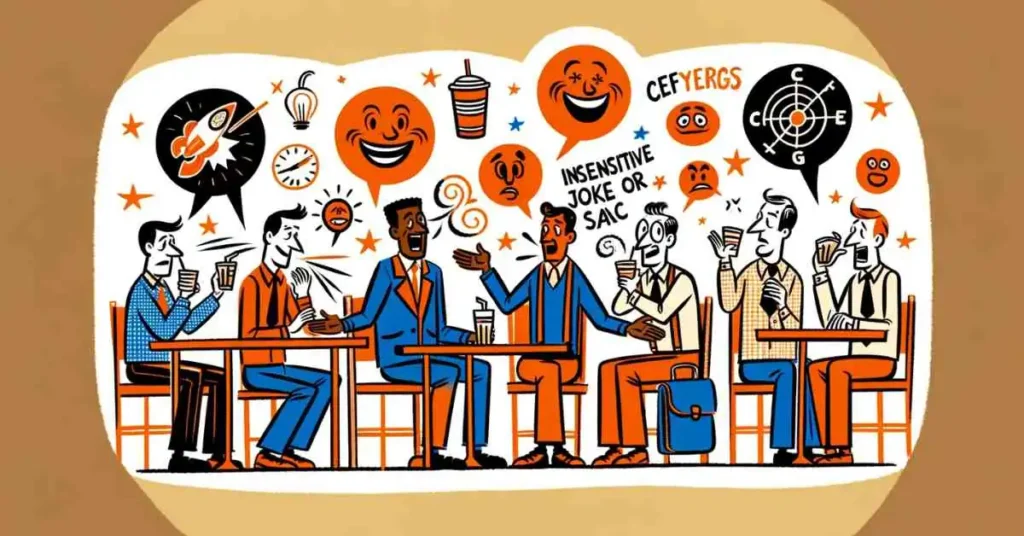
Sometimes, our jokes or sarcastic comments can hurt others. Here’s how to say sorry for that:
“I’m sorry for that joke I made. It wasn’t nice, and I didn’t want to upset you. I’ll be more careful with my jokes now.”
“I apologize for my sarcastic words. I see now they were hurtful, and I feel bad. I’ll try to be kinder.”
“Sorry for joking about your feelings. It was wrong, and I regret it. I’ll be more thoughtful about your feelings.”
“I didn’t mean to upset you with my sarcasm. I’m sorry, and I’ll try to be nicer and not so sarcastic.”
“I’m sorry for that insensitive thing I said. It wasn’t a good joke, and I’m sorry if it hurt you. I’ll try to be more respectful.”
“I’m sorry for my joke that hurt your feelings. I didn’t think about how it might make you feel. I’ll be more careful with my words.”
“I apologize for being sarcastic in a mean way. It wasn’t right, and I’m sorry. I’ll try to talk more nicely.”
“Sorry for making a joke that wasn’t kind. I didn’t realize it then, but now I see it was wrong. I’ll be more careful.”
“I regret saying something sarcastic and hurtful. It wasn’t kind, and I’m sorry. I’ll work on being nicer.”
“I’m sorry for making fun of something important to you. It was thoughtless, and I understand if it hurt you. I’ll be more respectful.”
“I apologize for my hurtful humor. It wasn’t nice, and I’m sorry for any hurt I caused. I promise to be more considerate.”
Saying sorry like this shows you understand that your joke or sarcasm wasn’t kind and that you feel sorry about it. Remember, thinking about how our words can affect others is important.
Acknowledging the Pain and Hurt Caused
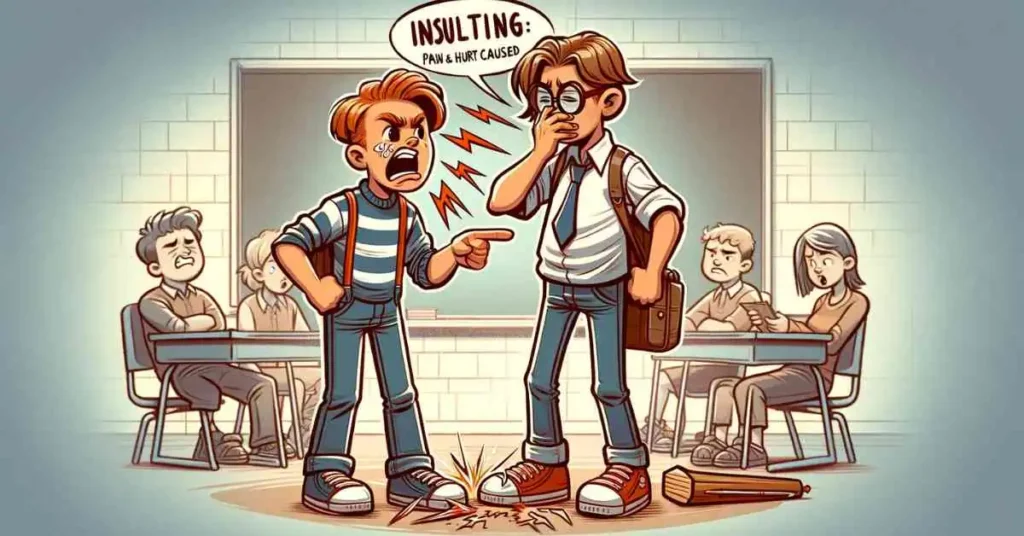
When we insult someone, it can really hurt them. Understanding and apologizing for the pain we’ve caused is important. Here’s how to do that:
“I realize now how much my words hurt you, and I’m deeply sorry. I didn’t mean to damage your self-esteem or make you feel bad.”
“I’m sorry for the pain I caused with my insulting behavior. It was wrong, and I understand it hurt our relationship.”
“I apologize for hurting you. What I said was harmful, and I see now how it affected your feelings and sense of worth.”
“I’m truly sorry for the emotional pain my words caused. It was thoughtless of me, and I regret hurting you like that.”
“I understand that my insults hurt you greatly, and I’m sorry. I didn’t think about how my words would make you feel.”
“I’m sorry for saying things that hurt your feelings. I see now that it was wrong and caused a lot of pain.”
“I apologize for my hurtful words. They were mean, and I regret causing you pain and harming our relationship.”
“I’m deeply sorry for how much I hurt you with what I said. It was a mistake, and I didn’t mean to make you feel less important.”
“I regret the pain and hurt I caused with my insulting behavior. I understand now how it hurt you, and I’m sorry.”
“I’m sorry for the damage I did to your self-esteem with my hurtful words. It wasn’t right, and I promise to be more kind and understanding.”
“I apologize for the emotional hurt I caused. It wasn’t fair to you, and I want you to listen and understand how I made you feel.”
Saying sorry like this shows you know your words were hurtful and that you feel bad about it. It’s important to listen to the other person’s feelings and take responsibility for the pain we’ve caused.
Reaffirming Respect and Appreciation
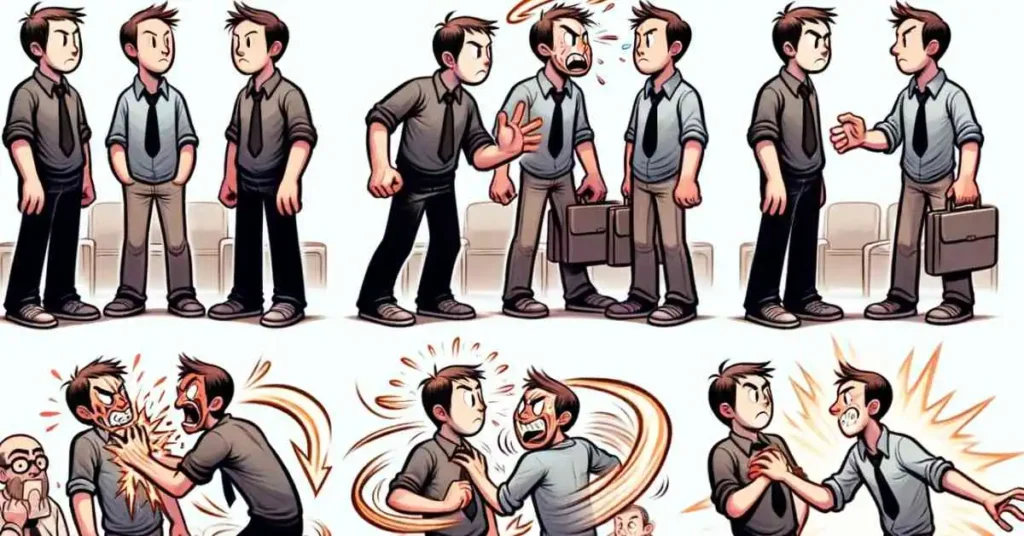
After saying something hurtful, you must show respect and value to the person you insulted. Here are some ways to do that:
“I really respect you and apologize for my hurtful words. You are important, and I value what you bring to my life.”
“I greatly appreciate you and am sorry for insulting you. You mean a lot to me, and I want to fix our friendship.”
“You are a great person, and I’m sorry for not showing that in my actions. I respect you and want to make things right.”
“I’m sorry for what I said. You are valuable and special, and I didn’t mean to make you feel otherwise.”
“I value your presence in my life and regret my hurtful words. I want to show you more respect and appreciation.”
“You are an important part of my life, and I’m sorry for forgetting that. I respect you and all that you do.”
“I’m sorry for insulting you. You deserve respect, and I want to work on giving you the appreciation you deserve.”
“I respect your qualities and apologize for not showing it. I appreciate you and hope to rebuild the trust between us.”
“I value our relationship, and I’m sorry for the hurtful things I said. I want to focus on the good things we share.”
“You are important to me, and I’m sorry for my words. I respect you a lot and want to improve our friendship.”
“I’m sorry for not showing how much I appreciate you. You are special, and I want to respect and value you more.”
Saying sorry like this shows you understand the good things about the person and that you feel bad about hurting them. It’s important to make them feel valued and respected again.
Seeking Forgiveness and Making Amends
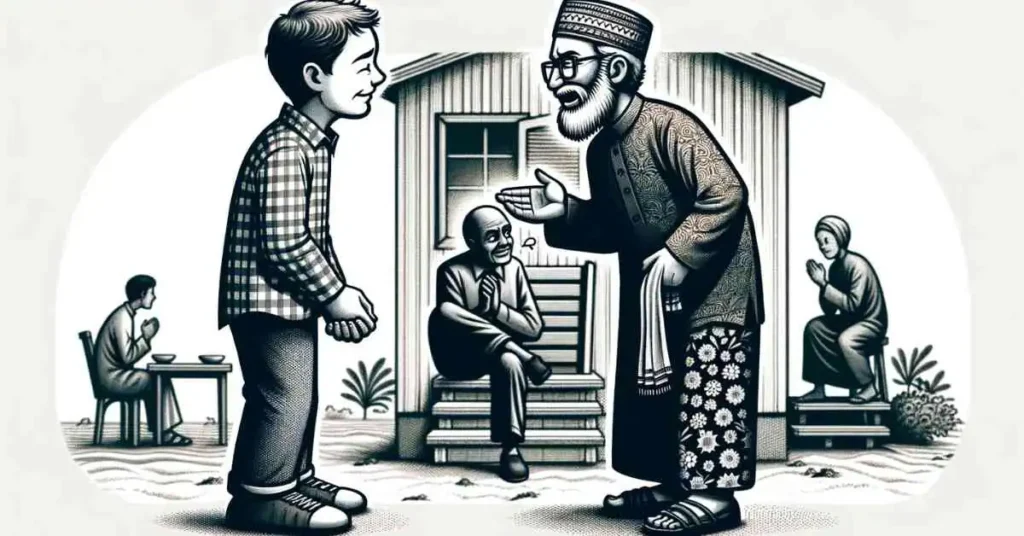
After you’ve said something hurtful, it’s really important to apologize and try to improve things. Here are some simple ways to do that:
“I’m sorry for what I said. I hope you can forgive me. I want to fix things and make it up to you.”
“I’m sorry for my words. Please forgive me. I’d like to help or do something nice for you to show I mean it.”
“I want to say sorry and make things right. Can you forgive me? I’m ready to do what I can to make things better.”
“I feel bad for insulting you and want to make amends. Is there something I can do to show I’m truly sorry?”
“I’m asking for your forgiveness. I want to compensate for what I did and help us return to being good friends.”
“I hope you can forgive me for my hurtful words. I’d like to do something to show I’m sorry and that I care.”
“I’m sorry for my behavior. Please let me make it up to you. Your forgiveness would mean a lot to me.”
“I regret what I said and want to make things right. Can you forgive me? Maybe I can do something special to show I’m sorry.”
“I’m asking for your forgiveness. I want to fix what I broke and help us get back to a good place in our relationship.”
“Please forgive me for the hurtful things I said. I’d like to do something to make it better and show I care.”
“I’m truly sorry and hope you can forgive me. I want to make a meaningful gesture to show my regret and rebuild our friendship.”
Saying sorry like this shows you know you made a mistake and you want to fix it. It’s important to offer to do something to improve things and show you want to heal the friendship.
Closing Notes
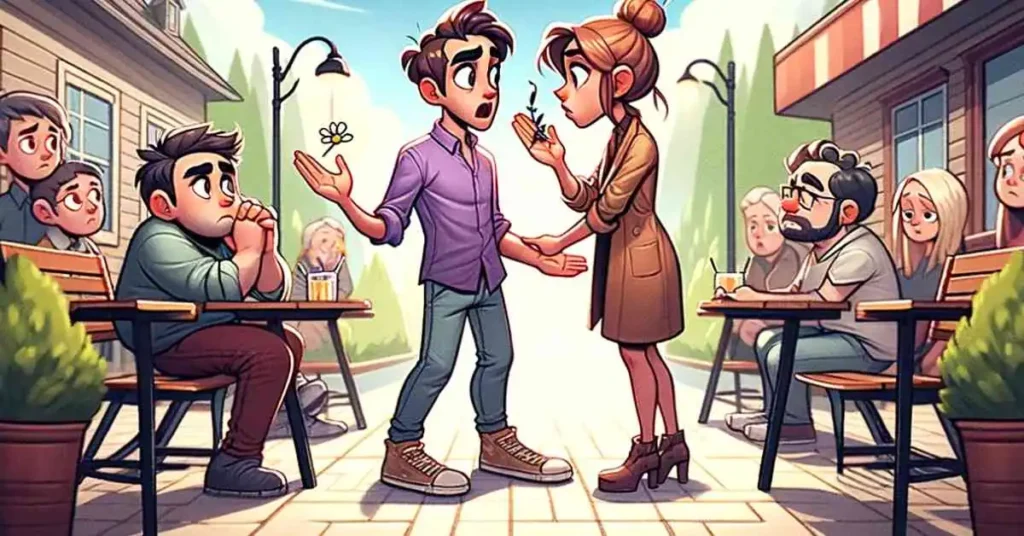
When we say sorry for insulting someone, it’s really important to mean it. It’s about being truly sorry, trying to understand how the other person feels, and wanting to be better. Saying sorry is more than just words – it’s about knowing we did something wrong, feeling sorry for it, asking for forgiveness, and then showing we can change and be nicer.
Thank you for reading these sorry messages for insulting. We hope they help you if you ever need to say sorry for saying something hurtful. Saying a real sorry can help fix friendships or any kind of relationship. We’re happy to share these messages with you and hope they help you say sorry in a way that’s honest and understanding and shows you want to be better. Remember, saying sorry is the first step to mending things and being kinder.

